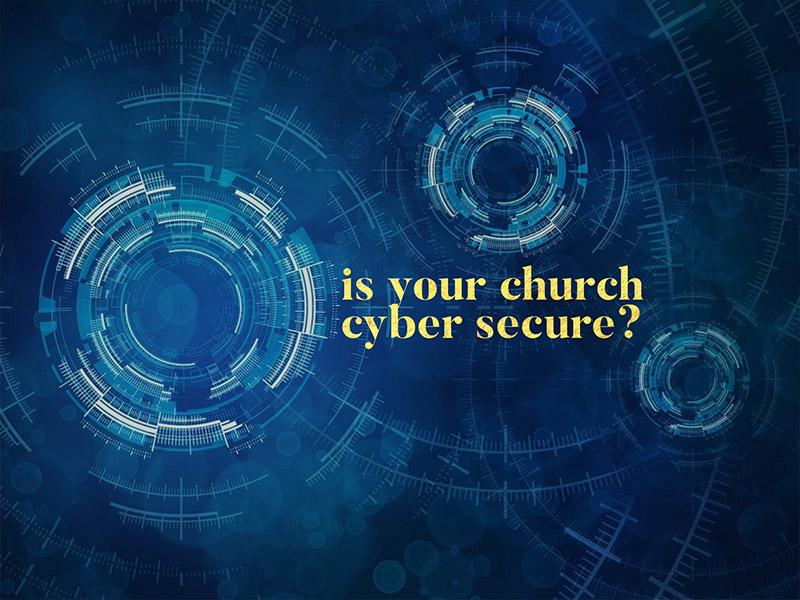Is Your Church Cyber Secure?

Cybersecurity is the practice of protecting systems, networks, and programs from digital attacks. These cyberattacks are normally aimed at accessing, changing, or destroying sensitive information; extorting money from users; or interrupting normal processes and procedures.
Churches may believe they are too small to be at risk of a cyberattack or that they don’t have data a hacker would want. Whether a church is operating with one computer or utilizing an internal network with multiple devices, cybersecurity should be given attention. Criminals often focus on smaller organizations because they assume these organizations lack the resources to maintain strong information security controls.
Common Threats You Should Understand
Malware: Malware is malicious software installed without a user’s knowledge, typically when a user clicks on a link in a phishing email or visits an infected website.
Phishing Emails: Fraudulent emails that trick the recipient into opening an attachment or clicking a link that allows hackers to infect systems.
Spear Phishing Emails: A fraudulent email that looks like it is from a person you know.
Technical Vulnerabilities: Holes in software code that can allow criminals to gain unauthorized access to a system.
Best Practices to Reduce Risk of An Attack
- Consider developing information security policies for the church.
- Ensure you have anti-virus and anti-malware software always running on your computers.
- Keep operating systems and software current by installing patches and updates when available.
- Create strong passwords.
- Provide security awareness training that focuses on phishing and other socially engineered scams.
Scott Thorson
[email protected] or 406.656.4233
